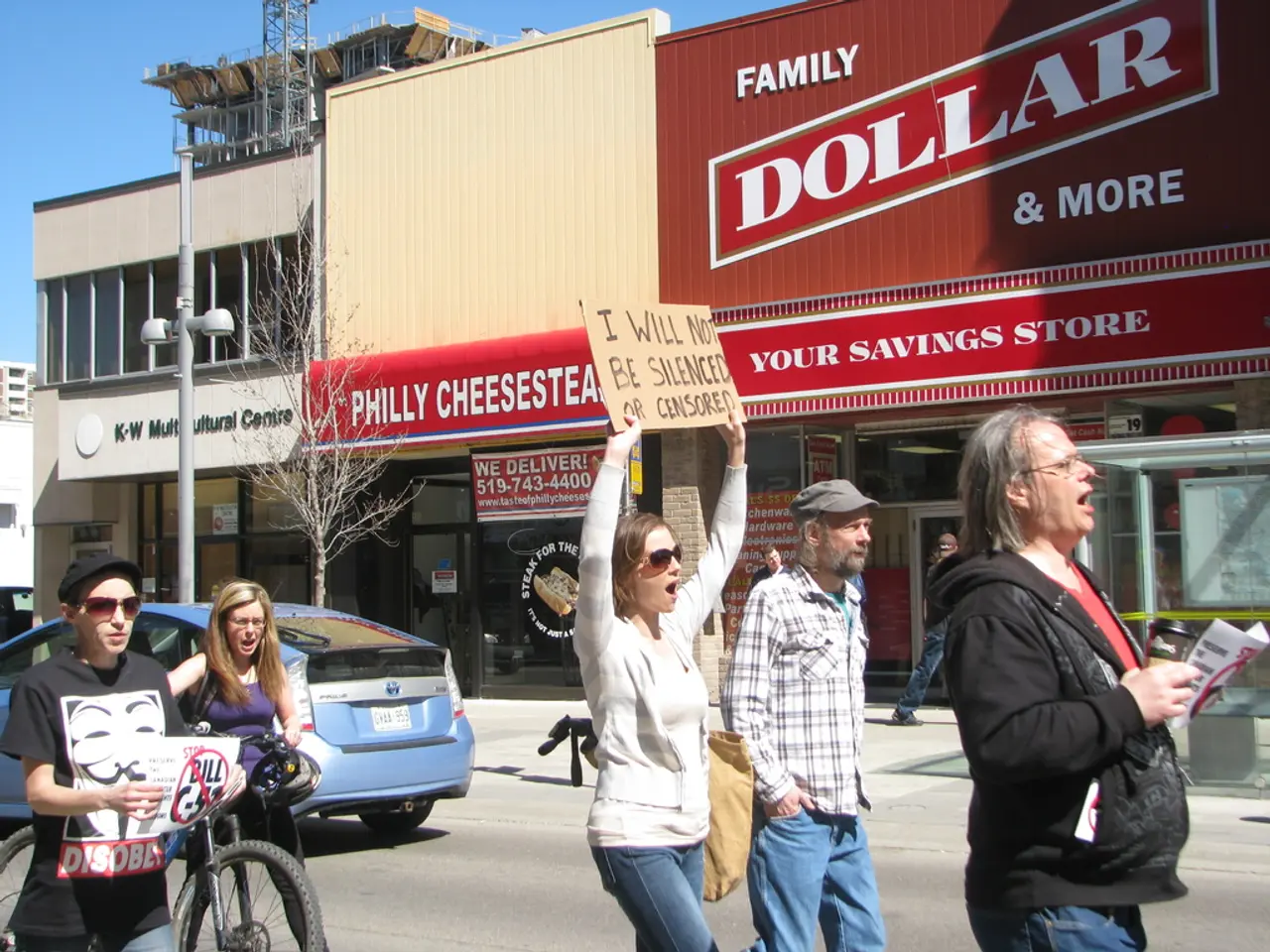France prepares for broadened strikes and demonstrations on Thursday
In a series of coordinated actions, France and several German cities will witness significant disruptions this week as a result of widespread protests and demonstrations.
The heart of the showdown in France is centered around next year's budget measures proposed by former Prime Minister Francois Bayrou, which include an overhaul of unemployment benefits, delinking pensions from inflation, and raising out-of-pocket medical costs. These proposed measures have sparked outrage among various sectors, leading to the participation of nearly all major unions in France.
The protests are expected to be particularly severe in the Paris region, with 90% of metro drivers and 80% of RER suburban rail drivers participating. Only fully automated metro lines (1, 4, and 14) will operate normally, and bus and tram services will be heavily reduced. Additionally, about one-third of primary school teachers will walk off the job, and hospitals in the Paris region have also filed protests.
The scale of the 18 September mobilisation is expected to surpass that of 10 September, with more than 250 rallies already planned across the country. An interactive map detailing the protests by region has been published by the CGT union. Protests are scheduled for all of France's major cities, including Paris, Lyon, Marseille, Toulouse, Nice, Rennes, Lille, Montpellier, Niimes, and Perpignan.
The main flashpoints are expected in major cities, particularly Paris. In response, outgoing Interior Minister Bruno Retailleau has instructed police to "prevent any damage" and block attempts to shut down "essential infrastructure." In anticipation of unrest, authorities will deploy an enormous security force: 80,000 police officers and gendarmes nationwide, backed by 24 armoured vehicles, 10 water cannons, and surveillance drones.
Electricity and gas workers will hold rallies outside energy facilities, adding to the disruption. The protests and demonstrations are expected to be one of the largest in recent years, with fears of potential escalation.
In Germany, demonstrations are taking place in multiple locations. On September 15, 2025, Arnstadt's Marktplatz will host a demonstration, followed by events at Bebelplatz in Berlin and Schlossplatz in Stuttgart on October 3, 2025. A nationwide climate demonstration by Fridays for Future is scheduled for September 20, 2025, across many German cities. Additionally, events are planned in Rostock and Berlin on various dates in September 2025.
The SNCF rail operator in France has promised that "all passengers should be able to travel during the day," offering free ticket exchanges and cancellations. However, high-speed TGVs (including Lyria and Ouigo) will face limited disruptions, and only one in three regional TER trains will run, with one in two intercity services being impacted.
Pharmacists plan to close nearly all pharmacies (98%) in protest, adding another layer of inconvenience for the public. The grassroots movement 'Bloquons tout' is preparing disruptive actions in the capital, including attempts to shut down sections of the capital's ring road.
France's fragile public finances are at the centre of the current crisis. The proposed budget measures come at a time when the national debt stands at more than €3.3 trillion, roughly 114% of economic output. Last year's deficit reached 5.8% of GDP, nearly double the EU ceiling of 3%.
These protests and demonstrations mark a significant moment in French and German politics, with citizens voicing their concerns over proposed budget measures and the impact they may have on their lives.






